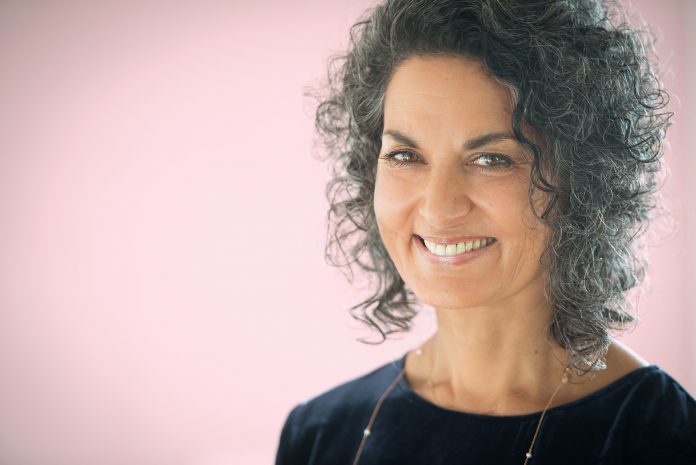We are all role models in life.
We watch each other, look to each other, for guidance when learning how to do things in life and how to be in life, and this process starts when we are very young and continues throughout our lives. As children, we look to our parents first and foremost, and they are our first and greatest role models. As we grow, we place more importance on the opinions of our friends and peers, and other people in our lives, but our parents mould us more than most of us like to admit or care to know.
As doctors, we are also role models – for our patients, our staff, our colleagues and families and in particular, for those we mentor and teach.
How much do we really understand the importance of this?
Do as I say, not as I do
The old adage: “Do as I say, not as I do” is unfortunately used by way too many of us.
We think we have a licence to do as we please once we are adults, and sometimes indulge in behaviours that we would not want our children to copy; yet we do them anyway, deliberately choosing to ignore the power of another home truth:
“Actions speak louder than words.”
We may have been spoken harshly to as children, yet find ourselves doing the same with ours when we are tired or stressed, and then admonishing them for speaking harshly too.
We may have worked long and hard when our children were young, finding little time for meaningful connection with them, and perhaps spent our evenings at home not wanting to connect after having to spend a whole day at work doing it, and then we wonder why they are addicted to social media, or turning to drugs and alcohol, or turning away from us to other people, in an attempt to find a sense of connection elsewhere.
And sometimes we parent in reaction to the way we were raised, determined not to hurt our children in the way that we were hurt, but this way of parenting can become a pandering, a spoiling, which does not ask our children to take responsibility for their actions and to feel the consequences of their choices, so we leave them poorly prepared to deal with life.
But what does the way we raise our kids have to do with being a doctor?
Doctors are people too
Firstly, it is all one life – there is no true separation between how we are at home and how we are at work, for we are walking around in the same body, wherever we are and whatever we are doing, carrying everything with us, all of the time!
And secondly, the way we were raised plays a large role in the way we are as people, including the way we are as doctors, and the way we mentor those we train.
If our relationships at home were healthy and loving, our relationships in life tend to be so too.
Even if our home life was not great, there is always someone in our lives we can look to as a true role model, as long as we are willing to look past our hurts and see what is on offer before our eyes.
And even if there is not one person we can see and say: “that is a loving and caring person”, we all know in our hearts what it feels like to be loved and cared for – if we didn’t know this, it wouldn’t hurt so much when we do not feel it.
We each have a responsibility to work on ourselves, to be honest about where we are at and to deal with and heal our hurts, so the legacy we pass on is one of love and care, not of creating more hurts as we were once hurt.
And this is no more true than in our mentoring of young trainees.
Healing the hurt starts with us
The medical culture can be harsh and cruel…bullying, discrimination and harassment are rife, as is finally being exposed publicly. We can all remember teachers who basically said: “I had to do it, so you have to do it too!” and this attitude has perpetuated the systematic abuse of many medical trainees.
It is time for this to stop, and it starts with us.
We are trained in a certain way and we tend to either pass that way on directly, or we mentor in reaction to it, much as we tend to parent. And despite our best intentions, we may find ourselves being a little harsh, even bullying at times, even though we were hurt by that way of being when we ourselves were trainees, or we may find ourselves pandering to our trainees in an effort not to hurt them the way we were hurt.
To move through this to a true way of role modelling requires a willingness to be open and honest about how we were treated during our training and how we feel about it, and if need be to get support to deal with any residual hurt and trauma so we do not pass it on.
We each have a choice, in every moment, as to how we treat each other, and the way we treat our fellow human beings has far more impact than most of us are willing to realise.
How we are as doctors, from the point of view of our knowledge, skills and technical expertise matters, but how we are as people matters even more. Ours is a people profession, and a healing profession, and we may be able to fix stuff and still be a ‘difficult person’, but we cannot truly help another to heal until we learn to treat people with the care and compassion, even love, that we all crave and deserve.
Whose role model are you?
What kind of role model are you?
And how can you become the role model you would like to have had yourself?
These are the questions it is worth taking time and space to ponder on, in order for us to serve as the true role models who can really make a difference to people’s lives.
In a recent article published on #ThankAMedicalMentor day (March 1) – which was developed by a group of doctors to thank colleagues who had made a positive impact on them – some lovely stories were shared, of doctors’ experiences with other doctors, who had offered a moment of deep care, or a lifetime of mentoring, and this is an exercise that is well worth reflecting on in our own lives, to appreciate how much we have been supported and cared for along the way, and to inspire us all to pass that way on.
We can make such a difference to people’s lives, be it a moment of inspiration that means the world to someone, or a steady consistent way of being that constantly reflects how we can be in life, a consistency which helps people to trust that we can practise medicine and be tender, loving, caring people as well.
For that is what true role modelling is, reflecting a way of being, not just in what we say but in what we do, in how we are, in how we live, that offers people a living breathing example of how to be in work, and how to be in life.









